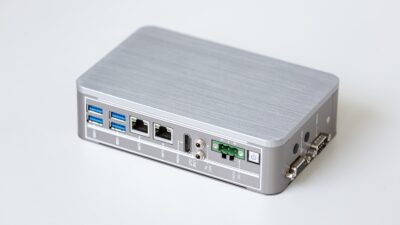The Power of Edge Computing for Smart Cities
Edge computing is revolutionizing smart city solutions in Saudi Arabia and the UAE, enhancing their responsiveness and efficiency. By processing data locally on edge devices rather than sending it to distant cloud servers, edge computing minimizes latency and enables real-time decision-making. This is crucial for time-sensitive applications such as traffic management, public safety, and environmental monitoring, where immediate action is required. By reducing the reliance on centralized cloud infrastructure, edge computing also improves the resilience of smart city systems, ensuring uninterrupted operation even in the event of network outages or disruptions.
Real-Time Insights for Proactive Governance
One of the key benefits of edge computing in smart cities is its ability to provide real-time insights into urban operations. For example, sensors deployed across the city can collect data on traffic patterns, air quality, energy consumption, and waste management. Edge computing devices located near these sensors can analyze this data in real-time, identifying patterns, anomalies, and potential issues. This information can then be used by city officials and service providers to make informed decisions, allocate resources efficiently, and respond proactively to emerging challenges. For instance, real-time traffic data can be used to optimize traffic light timings, reroute traffic, and reduce congestion, while air quality data can be used to identify pollution hotspots and take measures to mitigate them.
Improved Efficiency and Cost Savings
Edge computing also contributes to improved efficiency and cost savings in smart city solutions. By processing data locally, edge computing reduces the amount of data that needs to be transmitted to the cloud, resulting in lower bandwidth costs and reduced strain on network infrastructure. Additionally, edge computing devices can perform pre-processing of data, filtering out irrelevant information and reducing the computational load on central servers. This can lead to significant cost savings on cloud computing resources and improved overall system performance. For example, in smart buildings, edge computing devices can analyze data from sensors and control systems to optimize energy consumption, resulting in reduced energy bills and a smaller carbon footprint.
Edge Computing Applications in Smart City Solutions
Smart Traffic Management
In cities like Riyadh and Dubai, edge computing is being used to optimize traffic flow and reduce congestion. Sensors and cameras installed on roads and intersections collect real-time data on traffic volume, speed, and incidents. Edge computing devices located near these sensors analyze this data and use it to control traffic signals, adjust lane assignments, and provide real-time traffic information to drivers. This helps to improve traffic flow, reduce travel times, and enhance road safety.
Public Safety and Security
Edge computing plays a vital role in enhancing public safety and security in smart cities. Surveillance cameras equipped with edge computing capabilities can analyze video footage in real-time, detecting suspicious activities, identifying potential threats, and alerting authorities. This can help to prevent crime, respond quickly to emergencies, and ensure the safety of citizens. Additionally, edge computing can be used to monitor critical infrastructure, such as power grids and water supply systems, for signs of malfunction or sabotage, enabling rapid response and minimizing disruptions.
Environmental Monitoring and Sustainability
Edge computing is also instrumental in environmental monitoring and sustainability efforts in smart cities. Sensors deployed across the city can collect data on air quality, water quality, noise levels, and other environmental parameters. Edge computing devices can analyze this data in real-time, identifying pollution sources, detecting environmental hazards, and providing insights for sustainable urban planning. For example, real-time air quality data can be used to issue alerts to citizens, trigger mitigation measures, and inform long-term environmental policies.
Enhanced Citizen Engagement
Empowering Citizens with Real-Time Information
Edge computing enables smart cities to provide citizens with real-time information and services through mobile applications and digital platforms. For example, citizens can access real-time traffic information, public transportation schedules, air quality data, and emergency alerts on their smartphones. This empowers citizens to make informed decisions, plan their commutes, and stay safe during emergencies. Additionally, edge computing can be used to facilitate citizen participation in urban planning and decision-making through interactive platforms and feedback mechanisms.
Personalizing Services and Improving Quality of Life
By analyzing data collected from various sources, edge computing can help to personalize services and improve the quality of life in smart cities. For example, smart streetlights equipped with edge computing capabilities can adjust their brightness based on real-time traffic conditions, weather conditions, and pedestrian activity, optimizing energy consumption and enhancing safety. In public spaces, edge computing can be used to provide personalized recommendations for restaurants, shops, and cultural events based on individual preferences and interests. These personalized services can create a more enjoyable and engaging urban experience for residents and visitors alike.
The Road Ahead: Edge Computing as a Catalyst for Smart City Innovation
The potential of edge computing in smart city solutions is immense. As technology continues to advance, we can expect even more innovative applications that leverage the power of edge computing to create smarter, more efficient, and more livable cities. In the Gulf region, the commitment to smart city development and the investment in cutting-edge technologies are paving the way for a future where edge computing plays a central role in transforming urban landscapes and improving the lives of millions of people. With its ability to process data in real-time, enhance responsiveness, and enable personalized services, edge computing is set to become a key enabler of smart city innovation in the years to come.
#edgecomputing #smartcity #responsiveness #efficiency #urbanddevelopment #technology #SaudiArabia #UAE #Dubai #Riyadh























